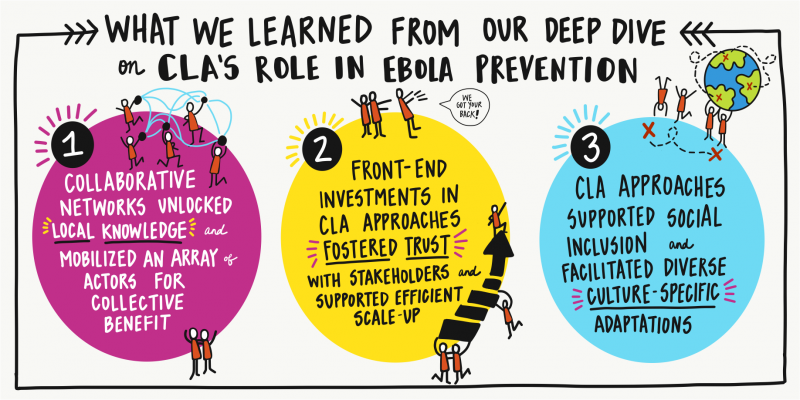Global Communities’ Ebola Response in Liberia / CLA Case Analysis: Deep Dive
Resources

The 2014–2015 outbreak of Ebola devastated communities in Liberia, overwhelming their fragile health care system with at least 10,675 cases and 4,809 disease-related deaths (U.S. Centers for Disease Control and Prevention (CDC), 2016). Prior to the outbreak, Global Communities, an international nonprofit development organization, had been working with hundreds of communities in Lofa, Nimba, and Bong counties on a U.S. Agency for International Development (USAID)-funded program to improve water, sanitation, and hygiene (WASH) since 2010, and was thus well placed to respond to the crisis.
Using a community engagement approach grounded in the principles of collaborating, learning, and adapting (CLA), Global Communities focused on reducing Ebola infections through safe burials and dead body management, education in Ebola-resistant hygiene and sanitation behaviors, and disease surveillance efforts.



